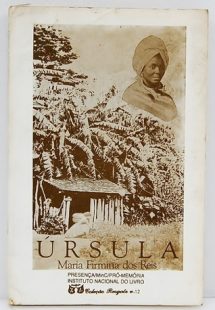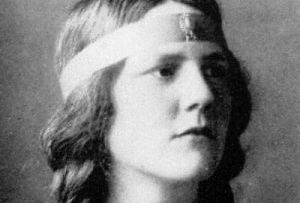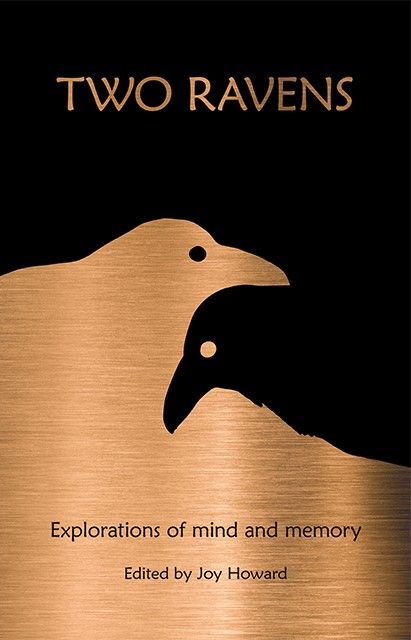
A Synopsis
Maria Firmina dos Reis’ abolitionist novel Úrsula – thought to be the first novel written by a Brazilian woman, certainly the first to be penned by an Afro-Brazilian woman – tells the story of two love triangles, however the heart of this book is not in its tales of doomed love but in its portrayal of enslaved people as human, with homes and histories and a right to freedom.
Here Amanda McCoy* tells Maria’s story of Úrsula. (the term ‘slave’ appears throughout the synopsis as this was Maria’s word choice in the original text):-
The story begins with well-to-do and honourable (white) bachelor Tancredo riding along on his horse when he suddenly falls off and loses consciousness. He is found by a slave, Tulio, who takes him to the house of his mistress, Luisa B, and her beautiful and virtuous daughter, Úrsula.
Sadly, Luisa B suffers from a great illness and is severely disabled as a result. She can barely get out of bed and her days are counted. Ursula is her carer, as her husband Paulo B died a few years ago. Both Tulio and Úrsula tend to Tancredo with great dedication while he is unwell.
In the beginning, Tancredo is delirious and it becomes clear that he is suffering from a broken heart. He keeps referring to a woman called Adelaide and in his delirium appears angry and extremely hurt. Tulio shows great kindness and affection to this stranger who, as soon as he is able, buys Tulio’s freedom, for which Tulio cannot be thankful enough.
Tancredo tells Úrsula the story of how he fell in love with Adelaide, a girl who was partially raised by his mother. Tancredo’s mother tried to help the couple but her husband was heartless and treated his wife with great disdain. Eventually Tancredo’s father agreeed to give his blessing to the union, on the condition that Tancredo went away on business for a long time. Tancredo left for many months and, on his return, found that his mother had died and Adelaide, whom he was so in love with, had betrayed him and married his father!
Úrsula is resistant to Tancredo’s love at first but, after hearing his tragic story, the couple tell her mother they wish to marry
As Tancredo is convalescing, he and Úrsula fall madly in love, a love which he declares to her in nearby woods, surprising her as she takes her usual morning stroll. Úrsula is resistant to Tancredo’s love at first but, after hearing his tragic story, and realising his intentions are noble, the couple tell her mother they wish to marry and Luisa B gives them her blessing.
When Tancredo is well enough, he has to leave and tend to some business before the wedding. Tulio follows him, as he feels indebted to Tancredo and has also developed a great deal of affection for him. During Tancredo’s absence Úrsula is met by her uncle, commander Fernando P, on one of her morning strolls. Fernando P is an arrogant, angry and nasty man, who most believe is responsible for the death of Paulo B. He declares his passionate love for Úrsula and vows to make her his.
Fernando P then visits his sister Luisa B, after years of ignoring her. Luisa B is immediately worried and, when he is gone, Úrsula reveals to her mother that Fernando P wants her to be his wife. Her mother becomes very upset and her last words before dying are to urge her daughter to flee.
Fernando P returns and is enraged to find out that Úrsula has gone. He takes out his rage on the old slave woman, Susana.
Úrsula mourns her mother at the cemetery of Santa Cruz, and becomes lost in a daydream. Meanwhile Tancredo and Tulio returns. The men are met by an old slave woman, Susana, who tells them everything that has happened, including the imminent danger posed by Úrsula’s uncle, who will soon return. Tancredo and Tulio take refuge in a convent, where they believe they will be safe.
Meanwhile, Fernando P returns and is enraged to find out that Úrsula has gone (he is not at all moved by the death of his own sister). He takes out his rage on the old slave woman Susana, taking her with him and locking her up in a cell alone with barely enough food and water. Fernando P seems to only have one friend, who is a priest. The latter tries to reason with him to calm down and be kinder to the slave woman who he believes hasn’t done anything to deserve her maltreatment, which eventually kills her.
Tancredo and Úrsula’s are finally reunited and on the day of their wedding, Tulio is captured by three men who work for Fernando P. They lock him up and he is watched over by an old slave, Antero. Tulio distracts the old man with the help of alcohol and manages to escape, however he is shot dead, just as he is approaching the coach which is carrying the newly married couple. Fernando P appears and shoots Tancredo dead in front of Úrsula, who ends up covered in his blood.
Adelaide, Tancredo’s first love and step-mother, finally sheds tears of sadness and ends up embittered.
Fernando P takes Úrsula with him, but doesn’t have the courage to see her for a few days as he is beginning to feel a pinch of remorse. His old friend the priest is progressively turning away from him, urging him to pray for forgiveness for the sins he has committed.
When Fernando P finally sums up the courage to see Úrsula he realises she has gone completely mad, which serves as his ultimate punishment. Eventually, Úrsula, now a madwoman, dies of her broken heart. In the epilogue the author describes how Fernando P finds refuge in a convent and ends up confessing his crimes and asking for forgiveness. We also read about how Adelaide sheds her first tears of sadness and ends up embittered.
——
Click here to read more about the three slaves;
Tulio, Susana and Antero.
__
*Amanda McCoy was born in Rio de Janeiro, Brazil, in 1979 to a Brazilian mother and British father. She was raised in Switzerland until the age of 16, when she moved to England with her family. She holds a degree in Philosophy, Politics and Economics, as well as a masters degree in Health Economics from the University of York.
Amanda spent a number of years living in Africa and subsequently Asia, working in the field of international health financing for various organisations, including the World Health Organization. She now lives with her husband and three children in south west England.
Amanda was keen to support Glasgow Women’s Library by creating a synopsis of Maria Firmina’s Úrsula, as she was very interested to learn more about Maria and her pioneering writing on abolitionism in Brazil, particularly in light of her own Brazilian roots and her experience in Africa. Amanda is also committed to the cause of equality for all human beings, a very strong theme throughout Úrsula.




